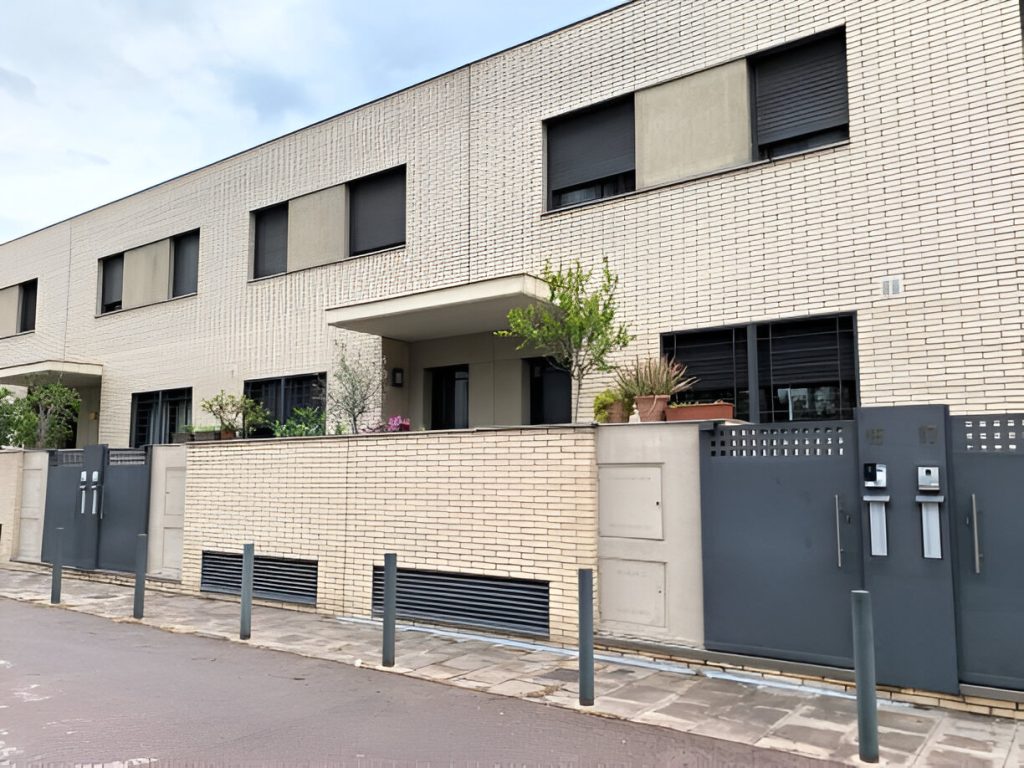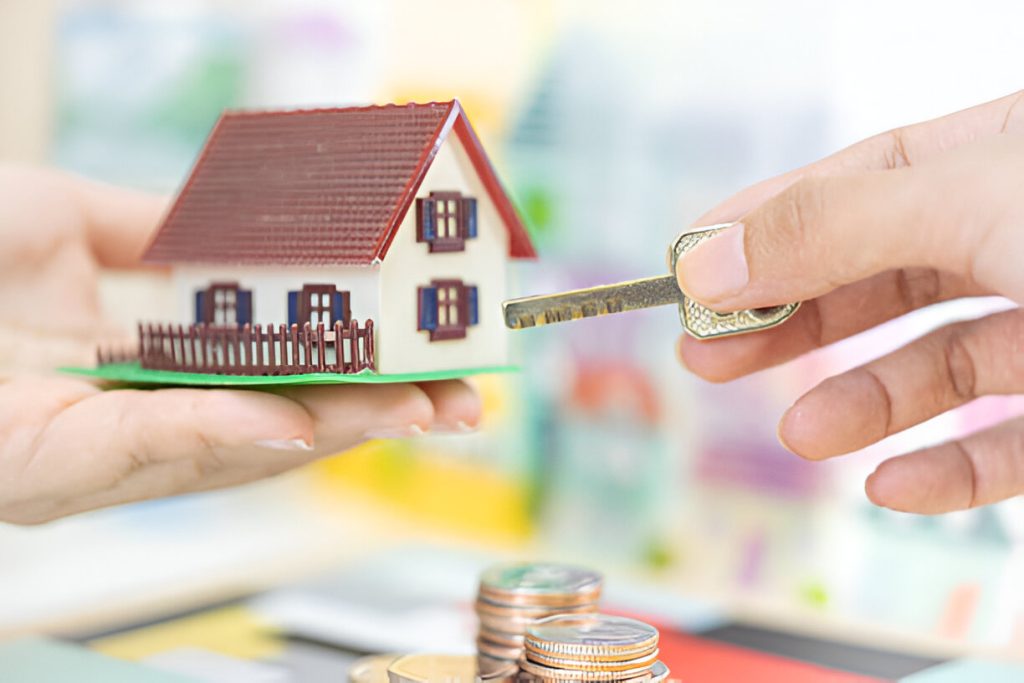
Buying property in Spain as a foreigner can be a thrilling venture, opening doors to a new lifestyle under the sun. Whether you’re drawn by the Mediterranean coast or the vibrant culture of cities like Barcelona, the allure of Spanish real estate is undeniable. But before you start dreaming of your new home, it’s crucial to get the lay of the land. Let’s break down what you need to know to make this process smooth and enjoyable.
What Are the Steps to Buying property in Spain as a foreigner?
Navigating the process of buying property in Spain involves several important steps. Each step plays a crucial role in ensuring that your purchase is legally sound and aligns with your investment goals.
Initial Research and Budgeting
Before diving into the property market, it’s essential to establish a clear budget. Start by calculating not only the purchase price but also additional costs such as taxes, legal fees, and notary fees. It’s also wise to research different regions of Spain to determine where you’d like to invest. Spain’s diverse regions each offer unique benefits, from the vibrant city life in Madrid to the tranquil beach settings of the Costa del Sol. Understanding these regional differences will help you make an informed decision that fits your lifestyle and investment goals.
Engage a Real Estate Agent
A knowledgeable local real estate agent can be an invaluable resource. They have insider knowledge of the market and can help you find properties that meet your criteria. An experienced agent will also guide you through the negotiation process and assist with paperwork, making the process less overwhelming. Their expertise can also provide insight into the local market trends and help you avoid common pitfalls.
Visit Spain and View Properties
Seeing properties in person is crucial. Plan a visit to Spain to view potential homes and explore the neighborhoods. This visit will give you a firsthand look at the property and help you gauge the surrounding area. Walking through the neighborhoods will also allow you to experience the local amenities and get a feel for the community. It’s an opportunity to confirm that the area matches your expectations and lifestyle.
Make an Offer and Negotiate
Once you’ve found a property you’re interested in, the next step is to make an offer. Your real estate agent will assist with this process, helping you formulate a competitive offer based on the current market conditions. Be prepared for negotiations, as this is a standard part of the process. A well-negotiated deal can save you money and ensure you get the best possible terms.
Hire a Lawyer
A local lawyer is essential to navigate the legal aspects of the purchase. They will review contracts, verify the property’s legal status, and ensure that all legal requirements are met. Having a lawyer who is well-versed in Spanish property law will provide peace of mind and help you avoid any legal issues that could arise during the transaction.
Sign the Contract
After agreeing on the terms and price, you’ll sign a preliminary contract. This contract typically involves paying a deposit, which is usually around 10% of the purchase price. The preliminary contract outlines the terms of the sale and the responsibilities of both parties. It’s important to carefully review this contract with your lawyer to ensure that everything is in order.
Complete the Purchase
The final step in the purchase process is to complete the transaction at the notary’s office. Here, you’ll pay the remaining balance and officially transfer ownership. The notary will ensure that all legal formalities are adhered to, and you’ll receive the keys to your new property. This step finalizes the purchase and makes you the official owner of the property.
How to Buy a House in Barcelona as a Foreigner?
Barcelona, with its rich history, vibrant culture, and stunning architecture, is a highly sought-after location for property buyers. Here’s a detailed look at what you need to know if you’re considering buying a house in this iconic city.

Market Research
Barcelona’s property market is diverse, with various neighborhoods offering different lifestyles. For example, Eixample is known for its elegant architecture and wide streets, while Grà cia offers a more bohemian and artistic vibe. Researching these neighborhoods will help you identify the area that best suits your preferences and lifestyle. Understanding local market trends and property values in these areas will also help you make an informed decision.
Property Prices
The property market in Barcelona can be competitive, especially in central areas. Prices can
vary significantly depending on the location, size, and condition of the property. It’s essential to understand the market rates and budget accordingly. High demand in popular neighborhoods can drive up prices, so having a clear budget and knowing what you’re willing to spend will help you make realistic offers.
Local Regulations
Barcelona, like other cities in Spain, has specific regulations for property transactions. One key requirement is obtaining a local tax identification number, which is necessary for completing the purchase. Familiarize yourself with these regulations to ensure that you comply with all legal requirements. This step is crucial to avoid any legal complications during the buying process.
Choosing a Neighborhood
Barcelona’s neighborhoods each have their own character and appeal. Whether you’re looking for historic charm in the Gothic Quarter or modern amenities in the 22@ district, Barcelona has something for everyone. Consider what type of lifestyle you want and choose a neighborhood that aligns with your preferences. Each area offers different benefits, so it’s important to select one that fits your needs.
Finding a Real Estate Agent
Look for real estate agents who have experience with the Barcelona market. They will have valuable insights into the local property scene and can help you find properties that match your criteria. A good agent will also assist with negotiations and ensure that the transaction process goes smoothly. Their local knowledge and expertise can be instrumental in finding the perfect property.
Viewing Properties
Schedule property viewings to get a firsthand look at potential homes. Visiting properties will give you a better understanding of their condition and the surrounding neighborhood. This step is also an opportunity to meet with agents and ask any questions you may have. Seeing the property in person is crucial to ensure that it meets your expectations.
Making an Offer
Once you’ve found a property that you like, make an offer. Your real estate agent will help you formulate a competitive offer based on market conditions. Be prepared for negotiations, as this is a common part of the process. A well-negotiated offer can help you secure the property at a favorable price.
What Are the Costs Involved in Buying Property in Spain?
When buying property in Spain, it’s important to account for various additional costs beyond the purchase price. Here’s a breakdown of what you can expect:
Taxes and Fees
Several taxes and fees come with buying property in Spain. The property transfer tax, which varies depending on the region, is one of the primary costs. You’ll also need to pay VAT if you’re buying a new property. Be sure to factor these costs into your budget to avoid any surprises.
Legal Fees
Hiring a lawyer is a crucial step in the buying process. Legal fees can vary depending on the complexity of the transaction and the lawyer’s rates. A good lawyer will review contracts, ensure compliance with local laws, and handle any legal issues that arise. Their expertise is essential to protect your interests.
Notary Fees
A notary oversees the signing of the final contract and ensures that all legal formalities are met. Notary fees are typically a percentage of the property price and can vary depending on the value of the property. This fee is an important part of the purchasing process and ensures that the transaction is legally binding.
Registration Fees
Once the purchase is complete, you’ll need to register the property in your name. This involves additional fees, which vary based on the property’s location and value. Registration is a necessary step to ensure that the property is officially transferred to your ownership.
Property Management Fees
If you’re not residing in Spain full-time, you might need a property management service to handle the day-to-day management of your property. These services can include tasks such as rent collection, maintenance, and repairs. Property management fees are an ongoing cost to consider when owning property abroad.
Maintenance Costs
Maintaining your property is an ongoing expense. This includes costs for repairs, utilities, and general upkeep. Regular maintenance is essential to keep your property in good condition and protect your investment.
Insurance
Property insurance is important to protect your investment from unforeseen events such as damage or theft. The cost of insurance will depend on the property’s location and value, but it’s a necessary expense to safeguard your investment.
How to Sell a Flat in Barcelona?
If you’re looking to sell a property in Barcelona, there are several steps you need to follow to ensure a smooth and successful sale.

Prepare Your Property
Before listing your property for sale, make sure it’s in good condition. Consider making any necessary repairs or upgrades to enhance its appeal. A well-maintained property is more likely to attract buyers and command a higher price.
Set the Right Price
Research the local market to determine a competitive price for your property. Overpricing can deter potential buyers, while underpricing might result in a loss. A real estate agent can help you set a realistic price based on current market conditions.
Hire a Real Estate Agent
An experienced real estate agent can assist with marketing your property and finding qualified buyers. They will have access to local networks and platforms to promote your property effectively. Their expertise in the Barcelona market will help you navigate the selling process.
Market Your Property
Utilize online platforms, social media, and local networks to reach potential buyers. High-quality photos and a compelling property description can make a significant difference in attracting interest. Effective marketing is key to selling your property quickly and at a favorable price.
Handle Offers and Negotiations
Be prepared to handle offers and negotiations from potential buyers. Your real estate agent will assist with this process and help you negotiate the best possible terms. It’s important to be flexible and open to negotiations to achieve a successful sale.
Complete Legal Requirements
Ensure that all legal documentation is in order and handle the transfer of ownership smoothly. This includes preparing the necessary paperwork and working with a notary to finalize the sale. Completing these legal requirements is crucial to ensure a hassle-free transaction.
Finalize the Sale
Once you have a buyer and have agreed on the terms, finalize the sale by signing the necessary documents and transferring ownership. This step marks the official transfer of the property to the new owner and completes the selling process.
Why Consider Investing in Spanish Property?
Investing in Spanish property offers several advantages that make it an attractive opportunity for investors. Here’s why Spanish real estate is worth considering:
Diverse Market
Spain’s real estate market caters to a wide range of preferences. Whether you’re interested in a beachfront property, a historic city apartment, or a rural retreat, Spain has something for everyone. This diversity allows investors to find properties that match their preferences and investment goals.
Strong Rental Market
Popular tourist destinations like Barcelona and Madrid offer strong rental yields, making property investment profitable. The demand for short-term rentals in these cities is high, providing a steady income stream for property owners. Investing in rental properties in these areas can yield significant returns.
Quality of Life
Spain’s excellent weather, rich culture, and vibrant lifestyle make it an appealing place to live or vacation. The country’s high quality of life, combined with its welcoming atmosphere, makes it an attractive destination for property buyers seeking both a home and an investment.
Growing Economy
Spain’s economy has shown positive growth, which can positively impact property values and investment potential. A growing economy typically leads to increased demand for real estate, contributing to higher property values and investment returns.
Favorable Buying Conditions
Foreigners can buy property in Spain with relative ease, thanks to favorable regulations for international investors. The process is straightforward, and Spain offers a welcoming environment for foreign buyers. This accessibility makes Spain an attractive option for international property investors.
Long-Term Value
Spanish property has historically demonstrated stable long-term value. This stability makes it a reliable investment choice, with the potential for steady appreciation over time. Investing in Spanish real estate can provide a solid return on investment in the long run.
Potential for Appreciation
With the right property in a desirable location, you could see significant appreciation over time. Spain’s diverse market offers opportunities for property value growth, particularly in sought-after areas with strong demand. Investing in such properties can yield substantial returns as their value increases.
What Are the Key Considerations for Foreign Buyers?
When buying property in Spain as a foreigner, there are several key considerations to keep in mind:

Legal Requirements
Ensure compliance with local legal requirements, including obtaining a Spanish tax identification number. This number is essential for completing the purchase and handling tax obligations. Familiarize yourself with these requirements to avoid any legal complications.
Financing Options
Explore financing options available to foreigners. Many Spanish banks offer mortgages to international buyers, but terms and conditions may vary. It’s important to understand the financing options available to you and choose the one that best fits your needs.
Cultural Differences
Be aware of cultural differences in real estate transactions. Working with local professionals can help bridge any gaps and ensure that you understand the local customs and practices. This awareness can make the buying process smoother and more comfortable.
Language Barriers
If you’re not fluent in Spanish, consider hiring a bilingual lawyer or real estate agent. Effective communication is crucial in real estate transactions, and having professionals who speak your language can help prevent misunderstandings and ensure a successful purchase.
Property Management
Consider how you’ll manage the property if you’re not residing in Spain full-time. Property management services can handle tasks such as rent collection, maintenance, and repairs. These services can be invaluable for managing your property from abroad.
Local Market Trends
Stay informed about local market trends and property values. Understanding these trends will help you make informed investment decisions and choose properties with good potential for appreciation. Keeping up-to-date with the market can also help you identify emerging opportunities.
Investment Goals
Clearly define your investment goals before purchasing property. Whether you’re looking for rental income, a vacation home, or long-term value appreciation, having clear goals will help guide your decision-making process and ensure that you make a choice that aligns with your objectives.
FAQs
Can foreigners buy property in Spain?
Yes, foreigners can buy property in Spain. There are no restrictions on foreign ownership, but you will need a Spanish tax identification number and may need to comply with additional legal requirements.
Do I need to speak Spanish to buy property in Spain?
While speaking Spanish is not a requirement, it can be helpful. Hiring a bilingual real estate agent or lawyer can assist with any language barriers and ensure smooth communication throughout the process.
How much should I budget for additional costs?
It’s recommended to budget an additional 10-15% of the purchase price for taxes, legal fees, notary fees, and registration fees. These additional costs can add up, so it’s important to plan accordingly.
Can I get a mortgage as a foreigner in Spain?
Yes, many Spanish banks offer mortgages to foreigners. However, terms and conditions may vary, and it’s wise to explore your options and understand the requirements before applying for a mortgage.
How long does the buying process take?
The buying process can take a few months, depending on various factors such as the complexity of the property and your preparedness. Working with experienced professionals can help streamline the process and ensure a timely transaction.
What are the risks of buying property in Spain?
Risks include fluctuating property values, legal issues, and unforeseen costs. It’s crucial to conduct thorough research, work with experienced professionals, and carefully review all legal documents to mitigate these risks.
How can I sell my property in Barcelona?
To sell a property in Barcelona, prepare it for sale, set a competitive price, hire a real estate agent, market the property effectively, handle offers and negotiations, and complete the legal requirements for transferring ownership.
Conclusion
Buying property in Spain as a foreigner opens up a world of exciting opportunities, whether you’re dreaming of a sun-drenched retreat or a lively city apartment. By understanding the steps involved, budgeting for additional costs, and being aware of key considerations, you can make a well-informed decision. Spain’s diverse real estate market, favorable buying conditions, and high quality of life make it a compelling destination for property investment. With careful planning and the right approach, your Spanish property could become a cherished asset and a wonderful addition to your life. So, are you ready to embark on this thrilling journey and discover the perfect property in Spain?

